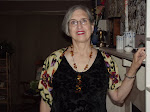Blog is a word coined from the phrase web log (as in Captain’s Log). A web log is to a website as a film is to a still photograph: both contain images, but one uses dynamic images and the other uses static ones. (Thanks to a fellow blogger for the idea. See http://www.zylstra.org/blog/archives/001145.html.)
Bloggers want to keep a running, dynamic record of their thoughts, idea, complaints, visions, products, families, ad infinitum and to do that, they write posts, or messages, that are published in real-time on the internet in a blog.
The reason that a person wants to blog determines the type of blog to set up. For example, you can blog as a personal journal and for this would likely choose a private blog which no one else can see without access to your ID and password. Or you might want to set up a blog for a group to use equally - a critique group or extended family, for example. Group blogs can be read and written into by any member of the group, making planning, brainstorming, and other group activities easier. A group blog can be private or public.
Public blogs are intended to be read by anyone who happens along. Public blogs can be controlled by the owner insofar as whether or not comments will be accepted and from whom; whether those comments must be approved or moderated by the blog’s owner; and whether the comments can be anonymous or not. There are many variables that the blog owner can control and the owner’s purpose or intention for the blog will define how she sets up her blog.
Before you do anything else to create your own blog, go on an afternoon or evening’s jaunt around the blogosphere. Read other peoples blogs at random. You will be AMAZED by the variety, topics, formats, languages, and creativity abounding there. You will undoubtedly be offended, tickled, perplexed, and outraged along the way but you will get a much better notion of what a blog can be and do. Read comments, as well, because that will help you make some choices as you put your blog together.
Once you determine the purpose of your blog - a social blog, a retail blog, a political blog, a personal blog, or a group blog - you need a title for it. Have the title ready before you sign up because it is practically the first question asked in the process and if you aren’t prepared, you might pick a title that you come to regret. Make your title reflect your intention. “Mary’s Musings” is not a great title for a hard-driving political blog; “Front and Center with Mary” may not be the best title for a recipe-sharing blog.
You have your intention and your title. Now you need a blog host; someplace to house your posts. There are many, many websites offering blog hosting. Rather than tell you about them in abbreviated fashion, let me refer you to a good, educational website with lots of information: http://www.thefreecountry.com/webhosting/freeblogging.shtml. This site will give you not only the information you need to make good choices but also links that will let you look before you leap and comparison shop.
I have blogged at Blogspot (a.k.a. Blogger, and now owned by Google) for four years. It offers lots of help for beginners and lots of advanced features for experienced bloggers. It is a large, well-known blogging host and not likely to disappear with my 123 precious posts.
Speaking of which, even if you are just blogging as a complete lark, you must immediately start saving your posts to a back-up site. Who knows when the worst might happen and they slide into oblivion forever? Who knows what your lark may turn into two or three or six or ten years from now? Your blog posts might end up being your best-seller or an important record of when you sold a certain piece of art, there’s just no telling.
As a writer, I worried about the safety of my blog posts. In my research about this concern, I came across a website called Creative Commons. In the organization’s own words,
Creative Commons provides free tools that let authors, scientists, artists, and educators easily mark their creative work with the freedoms they want it to carry. You can use CC to change your copyright terms from "All Rights Reserved" to "Some Rights Reserved. We're a nonprofit organization. Everything we do — including the software we create — is free.”
You can find Creative Commons at http://creativecommons.org/.
I first put CC on my blog in November 2004, but somewhere along the line I made a template change and lost it, something I just fixed today. Templates are the framework of your blog and good blogging hosts offer a wide assortment of templates for different purposes. Don’t be afraid to make template changes, but when you do, be sure to keep track of the different elements of your blog so everything gets put back.
The last thing I want to mention today is blogger courtesy. Don’t borrow without attribution and, whenever possible, publish the link right there in your blog so your reader can go to the source for more information. Promote your favorite blogs and websites, too. Cross-linking with like-minded blogs is a great way to get your blog read by more people.
Ciao!






No comments:
Post a Comment